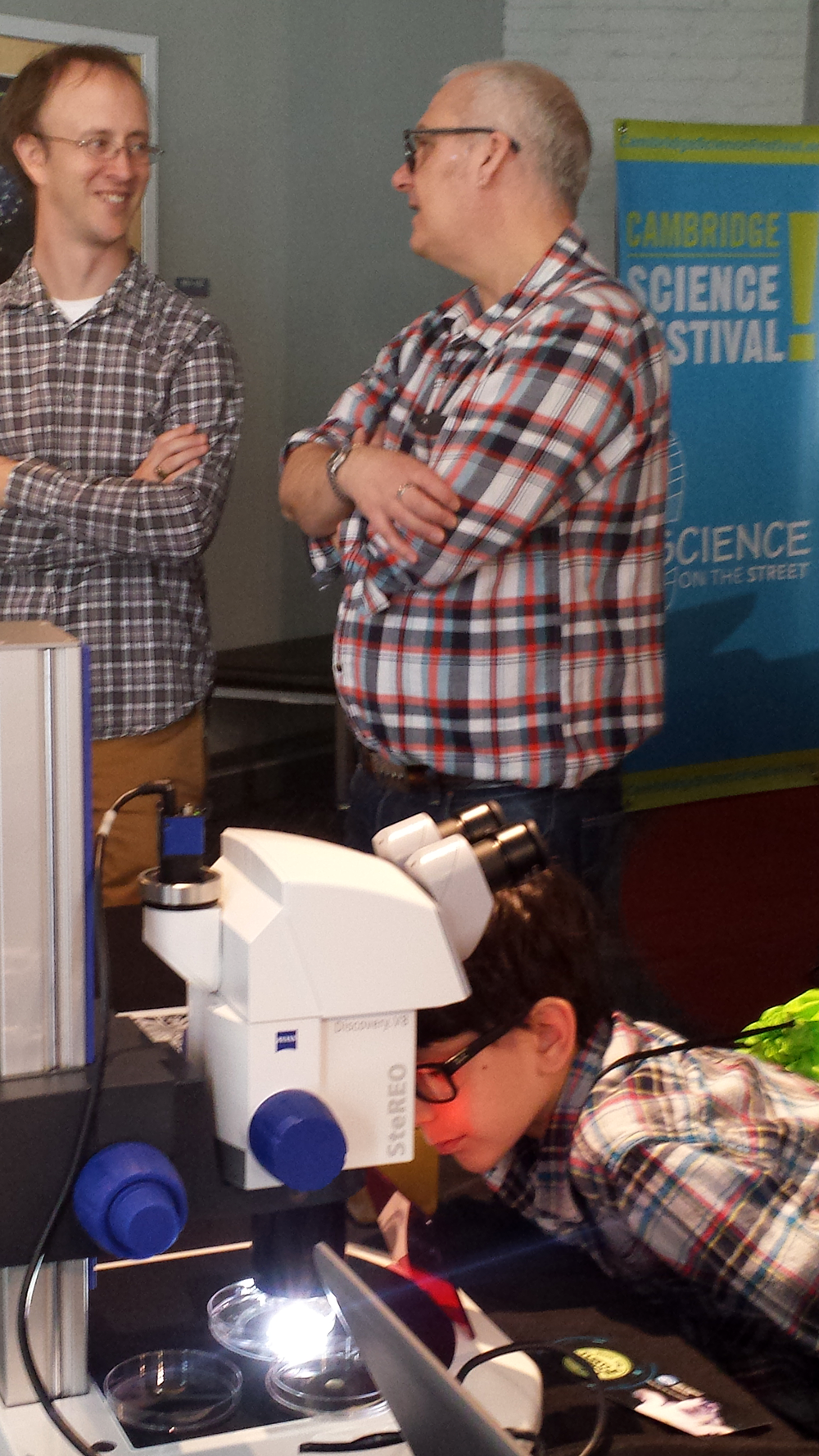WHOI Stories
-
Featured Stories, News, WHOI News | April 25, 2018
How Do Marine Mammals Avoid the Bends?
Study offers new hypothesis, highlights role that sonar plays in strandings -
Featured Stories, News, WHOI News | April 25, 2018
Sunlight Reduces Effectiveness of Dispersants Used in Oil Spills
Two new studies have shown that sunlight transforms oil on the ocean surface more significantly and quickly than previously thought. The phenomenon considerably limits the effectiveness of chemical dispersants, which are during oil spills to break up floating oil and reduce the amount of oil that reaches coastlines. -
News, WHOI - Oceanus | April 25, 2018
A Long Trail of Clues Leads to a Surprise About Oil Spills
Sunlight transforms oil compounds on the ocean surface -
Featured Stories, News, WHOI - Oceanus | April 25, 2018
Reassessing Guidelines for Oil Spill Cleanups
Sunlight plays key overlooked role in fate of oil in the ocean -
Featured Stories, News, WHOI - Oceanus | April 17, 2018
Mission to the Twilight Zone
The urgent quest to explore one of Earth's hidden frontiers -
Featured Stories, News, WHOI News | April 12, 2018
Mountain Erosion May Add Carbon Dioxide to Atmosphere
A new study led by researchers from the Woods Hole Oceanographic Institution (WHOI), however, has turned this idea on its head. In paper released on April 12th in the journal Science, the scientists announced that the erosion process can also be a source of new CO2 gas and can release it back into the atmosphere far faster than it’s being absorbed into newly exposed rock. -
Featured Stories, News, WHOI News | April 11, 2018
Atlantic Ocean Circulation at Weakest Point in 1,600 years
New research led by University College London (UCL) and Woods Hole Oceanographic Institution (WHOI) provides evidence that a key cog in the global ocean circulation system hasn’t been running at peak strength since the mid-1800s and is currently at its weakest point in the past 1,600 years. If the system continues to weaken, it could disrupt weather patterns from the United States and Europe to the African Sahel, and cause more rapid increase in sea level on the U.S. East Coast. -
Featured Stories, News, WHOI News | April 11, 2018
WHOI Among First Funding Recipients of The Audacious Project
$35M grant enables study of the ocean's mysterious twilight zone -
News, WHOI News | April 9, 2018
School Vacation Week Activities in Woods Hole
Woods Hole Oceanographic Institution (WHOI) and the Woods Hole Film Festival present “Discover Ocean Science in Woods Hole,” free films and activities during April school vacation week, Monday, April 16, through Friday, April 20, 2018. The events include family-friendly film screenings in Redfield Auditorium, 45 Water Street, Woods Hole, and hands-on activities in WHOI’s Ocean Science Discovery Center, 15 School Street, Woods Hole. -
Featured Stories, News, WHOI News | April 5, 2018
Penguins Go Through the Flow
Colonies of breeding king penguins behave much like particles in liquids do, according to a new study by the Woods Hole Oceanographic Institution (WHOI) and international colleagues. This "liquid" organization and structure enables breeding colonies to protect themselves against predators while also keeping members together. -
News, WHOI News | April 4, 2018
Human-Engineered Changes on Mississippi River Increased Extreme Floods
Over the last century, many of the world's major rivers have been modified for the purposes of flood control, power generation, and commercial navigation. A new study out of Woods Hole Oceanographic Institution revealed for the first time the last 500-year flood history of the Mississippi River. It shows a dramatic rise in the size and frequency of extreme floods in the past century—mostly due to projects to straighten, channelize, and bound the river with artificial levees. It also uncovered a clear pattern over the centuries linking flooding on the Mississippi with natural fluctuations of Pacific and Atlantic Ocean water temperatures. -
Featured Stories, News, WHOI - Oceanus | March 21, 2018
How Is the Seafloor Made?
Scientists use sound waves to probe the fabric of tectonic plates -
Featured Stories, News, WHOI - Oceanus | March 16, 2018
Unearthing Long-Gone Hurricanes
MIT/WHOI Joint Program in Oceanography graduate student Lizzie Wallace hunts for buried scientific treasure. -
News, WHOI - Oceanus | March 15, 2018
Long Island Blue Hole Core
Section 2 of 9 -
News, WHOI News | March 5, 2018
Woods Hole Sea Grant Awards Funds to Six New Coastal Projects
The Woods Hole Sea Grant program has awarded researchers from WHOI and other Massachusetts academic organizations funds for new projects, representing a total anticipated investment of nearly $1.5 million. -
Featured Stories, News, WHOI News | March 2, 2018
Previously Unknown “Supercolony” of Adelie Penguins Discovered in Antarctica
In a paper released on March 2nd in the journal Scientific Reports, scientists announced the discovery of a previously unknown "supercolony" of more than 1.5 million Adélie Penguins in the Danger Islands, a chain of remote, rocky islands off of the Antarctic Peninsula’s northern tip. -
Featured Stories, MIT EAPS, News, WHOI News | February 28, 2018
Where Fresh is Cool in Bay of Bengal
Monsoon runoff generates cool tendrils at surface, cuts off nutrients. -
Featured Stories, News, WHOI News | February 20, 2018
Rare Find from the Deep Sea
Scientists study a newly hatched dumbo octopus + VIDEO -
Featured Stories, News, WHOI News | February 14, 2018
Monitoring Bacteria on Whale Skin
Humpback microbiome linked to seasonal, environmental changes + VIDEO -
Featured Stories, News, WHOI - Oceanus | February 8, 2018
To Track an Oil Spill
Robotic "bloodhound" to sniff for oil in ice-covered oceans






